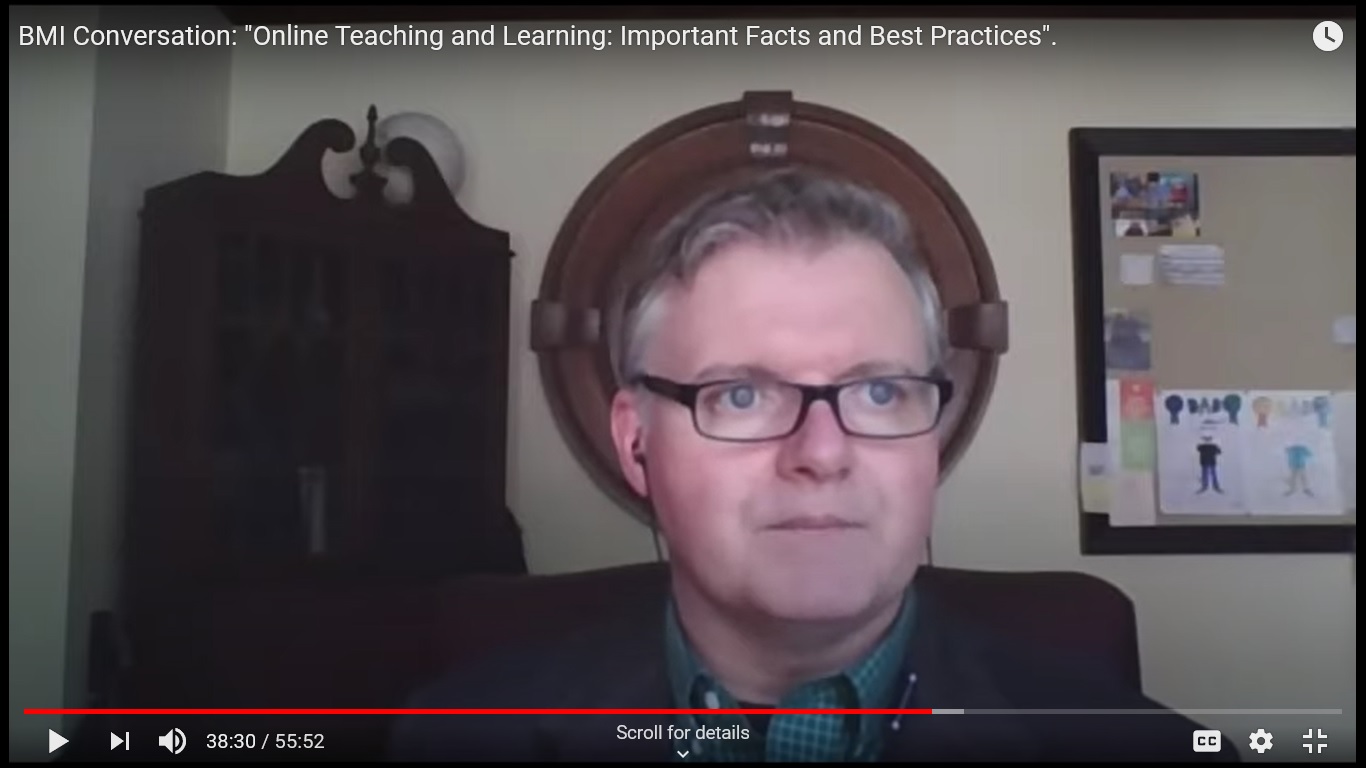Online education requires a “paradigm shift” by teachers, not just transferring a traditional ground class online. That was the conclusion of distance learning expert Jerry Lassetter during the most recent BibleMesh Institute webinar.
“There are pedagogies and practices that we love when we’re in the classroom,” said Lassetter, director of distance learning at Southeastern Baptist Theological Seminary. But “when we move to an online format, we have to start considering, what now has the online system added to my world, and how do I counter that?”
Among Lassetter’s tips for online education:
- Post multiple short lecture videos rather than one long video each week because students often don’t have large blocks of uninterrupted time for study.
- On quizzes and tests, convert some essay questions to objective questions that can be graded automatically by the learning management system. Grading essay questions can be more time-intensive online than when marking paper tests.
- Assign papers in parts. For example, require students to submit a thesis statement early in the class, then the first four pages of a rough draft several weeks later, and finally a full paper at the end of the class. That allows a professor to monitor student progress on the assignment like he or she might do through casual conversation before and after class in a traditional classroom.
- Post brief, supplemental instruction videos to clarify concepts with which students are struggling.
To complement the webinar, Lassetter has released a list of recommended resources for online teachers:
- Tina Stavredes and Tiffany Herder, A Guide to Online Course Design.
- Flower Darby, Small Teaching Online.
- Joanne Jung, Character Formation in Online Education.
The full April 2 webinar, “Online Teaching and Learning: Important Facts and Best Practices,” is available at https://www.youtube.com/watch?v=OVZsEKoJUqA&feature=youtu.be.
